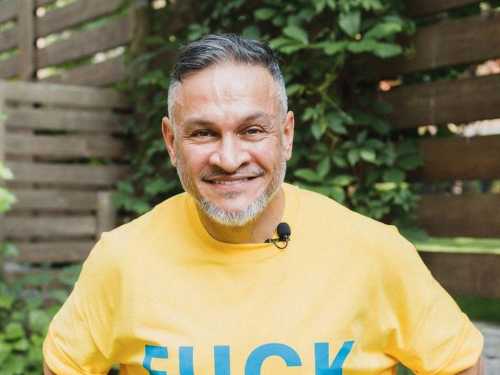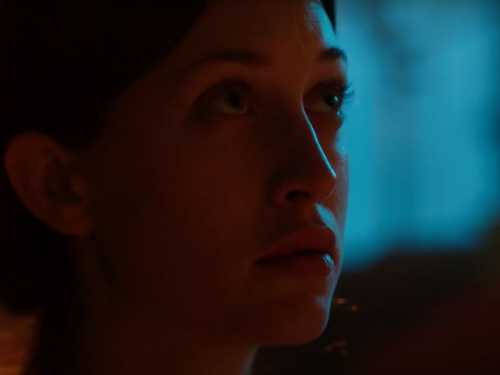
“Women Talking” is both horrifying and thrilling, infuriating and inspiring—a story of survivors of atrocities giving voice to their experiences and taking action to protect themselves. But it’s also a film at odds with itself. Its enormous power emerges from its text, which is adapted by Sarah Polley from Miriam Toews’s eponymous novel. Polley is also the film’s director, and the cinematic package in which the text is delivered doesn’t entirely do it justice.
The movie is set in 2010, on a farm in Canada that’s also a closed, cultlike religious community. Its residents are Mennonites; the colony’s men have taken grotesque advantage of its hermetic isolation to prey on the women, who are kept uneducated. Its men claim spiritual authority but deploy it for temporal, practical, physical, and tyrannical power. Many men drug women (using cow tranquillizer) and rape them, and then tell the women that the attacks were the work of supernatural demons, or that the attacks are delusions, or that the women are even willfully lying. Fathers rape daughters, brothers rape sisters; when a man rapes a toddler, the girl’s mother attacks the rapist, and the colony’s men take him to a nearby city for his safety. There, he’s put under arrest, and the colony’s men go to bail him out. While they’re away, the women—who are ordered by the colony to forgive the men under pain of eternal damnation—rapidly organize. The women hold a vote to choose among three options: stay and do nothing, stay and fight, or leave the colony. When the latter two options come out tied in the lead, three families of women are delegated to meet and decide.
One family is that of Agata (Judith Ivey) and her daughters, Ona (Rooney Mara), who is unmarried and is pregnant after being raped, and Salome, pronounced to rhyme with “shalom” (Claire Foy), whose four-year-old daughter was raped and infected with a sexually transmitted disease. Another is the one headed by Greta (Sheila McCarthy), whose older daughter, Mariche (Jessie Buckley), is married to a brutally violent man, and whose younger daughter, Mejal (Michelle McLeod), also a survivor of an attack, is aware of the destructive effect of the gaslighting that she has endured. Mariche’s sixteen-year-old daughter, Autje (Kate Hallett), is something of the movie’s overarching consciousness, by way of a voice-over narration addressed to Ona’s unborn child. While the narration is a practical concession to exposition, it also endows the film with Autje’s sharp-minded, analytical presence. She makes her disembodied voice address its own disembodiment—her own alienation from her body and from the material world as a result of the physical and mental attacks that she has endured.
It seems obvious what the women’s decision will be—it’s inconceivable that a respectable general-release movie would exalt either resignation to oppression or revolutionary carnage. That lack of suspense is insignificant, however, because the discussions that lead to the decision are utterly dramatic, intellectually absorbing, emotionally gripping. Most of the movie focusses on the deliberations of the three families. With no experience at any such debate, the very premises of the discussion are inseparable from their substance: the women build the foundations of this heuristic institution as they work together within it. The group includes one man: August (Ben Whishaw), whose mother was excommunicated from the group for her skeptical questions. Because the colony keeps women nearly illiterate, the deliberating group asks August—who received a secular education outside of the colony, and has returned to it as the boys’ teacher—to attend and take minutes. His presence, as the chronicler of the momentous gathering and as an inevitable participant, adds an extra dimension to it: the sense that the women are meeting and deciding not only for themselves but for their children, and for the future at large. (Toews’s novel is composed mostly of August’s minutes.)
The discussions involve the morality of violence, the nature of true forgiveness, the question of male nature, and the ineluctable responsibility borne even by men of the colony who weren’t among the attackers. They involve the women’s own sense of guilt and shame in their long-standing complicity in the men’s abuses, and the devastation of selfhood—the soul-murder—resulting from the physical violence, the mental abuses, and the oppressive environment that the women have confronted. Given the unshaken centrality of Christian faith in the women’s lives, the discussions broach the conflict between the doctrine in which they were raised and the horrors that have been inflicted on them in its name. One of the high points of the discussion shows Ona thinking beyond the horizons of received dogma—and risking heresy—when she imagines the women departing the colony to create something like a female-centric Reformation of their own.
The overarching drama is the women’s coming to consciousness by way of language. The women’s long-suppressed wisdom, their long-stifled self-consciousness, their hitherto-unrecognized eloquence, their self-creation, both inwardly and socially, along with their creation of language for their thoughts, feelings, and experiences—it’s a grand and original drama that’s situated in speech. The exceptional, often overwhelming power of the script that Polley wrote, based on Miriam Toews’s novel, is, if not undercut, not amplified by the filming. Polley’s script is, for the most part, uncompromisingly original and forthrightly distinctive; the images and performance (which I consider a function of directing), are, although skillful and sincere, conventional.
The movie’s soundtrack is burdened with a score, by Hildur Guðnadóttir, that would be well worth hearing on its own but which, in the context of the movie, is subtraction by addition. The words themselves are music—profound, melancholy, chilling, rousing music—and need no supplement, which is only a distraction. Yet this superfluous emotional amplification is of a piece with the direction of the performances. Though the cast is illustrious, and the performances are manifestly thoughtful, sincere, passionate, and precise, there’s an aspect of theatrical amplification that detracts from the sublime text.
Having created one of the great recent scripts, Polley doesn’t appear to have full confidence in the power of words to create images—to give rise to imagination in and of themselves. Instead of the story emerging from the talking, the talking comes off as subordinate to an imposed dramatic arc that itself stands between the characters and the viewers. That arc confines the talk as well as the physical action. Once the meeting reaches its inevitable (yet nonetheless inspiring) conclusion, the women’s organization to leave the colony becomes a pretext for a series of sidebars that tie up the loose ends of character psychology. The high-pressure relentlessness of every physical detail and every passing moment is vitiated in the sentimental extension of its dramatic scenes.
There’s no need to range far into film history to find movies that are exemplary in their imaginative and distinctive approach to language, including such recent releases as “Till” and “The Eternal Daughter” as well as “Saint Omer” (which goes into wide release January 13th). The very idea of “Women Talking”—its rootedness in text, its depiction of language as a source of transformative, historic power, as a basis of inner and outer liberation—is radical; the filming of the film, its relationship to images and performance, its dramaturgy, are not radical. As a result, the movie remains more of an admirable idea, an ambitious ideal, than an experience. ♦
Sourse: newyorker.com






